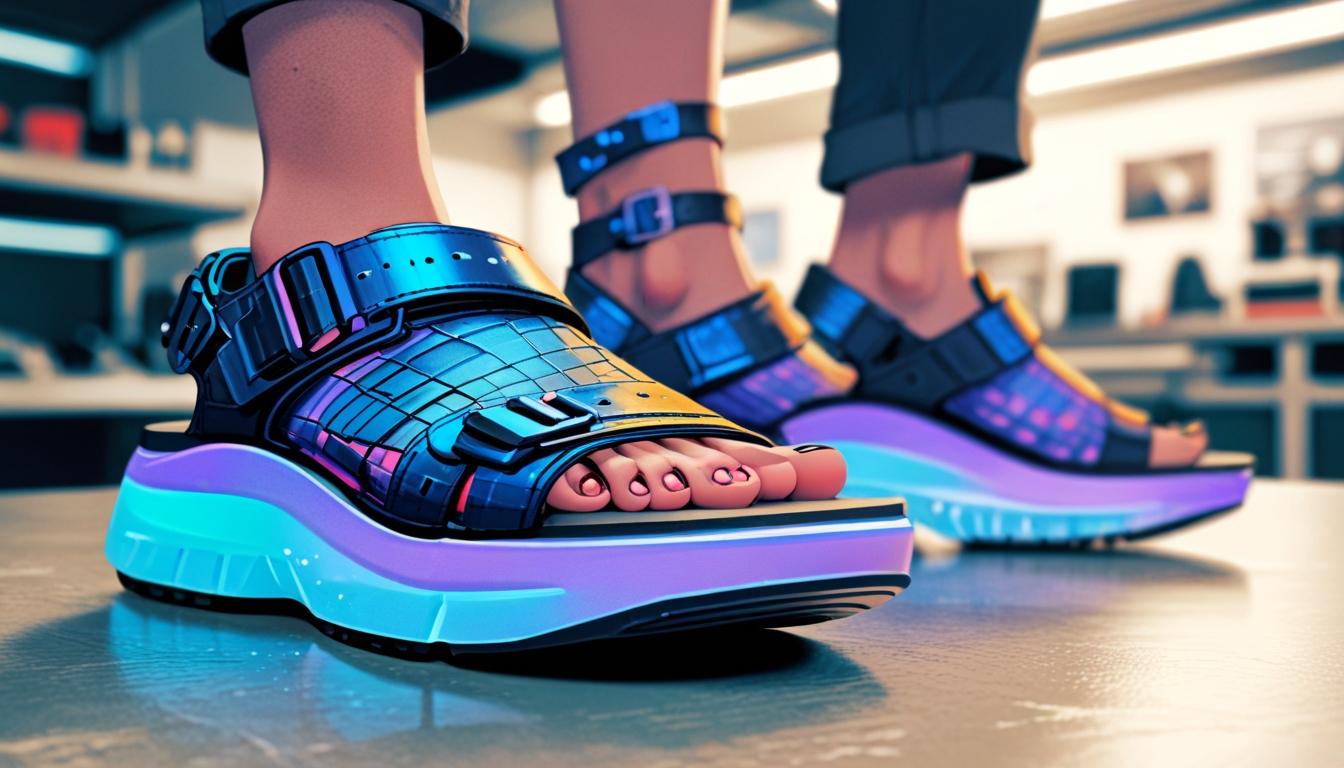Joe Foster, co-founder of Reebok, collaborates with entrepreneur Ben Weiss to launch the first-ever commercially available shoe designed entirely by AI and produced through 3D printing, revolutionizing footwear shopping.
Joe Foster, co-founder of the iconic footwear brand Reebok, has joined forces with 25-year-old entrepreneur Ben Weiss to introduce the first commercially available shoe designed entirely through artificial intelligence (AI) and produced via 3D printing. This partnership marks a significant innovation in the footwear industry, with the duo aiming to redefine how consumers approach shoe shopping.
Joe Foster, now 89, co-established Reebok in 1958 with his late brother Jeff, but stepped back from the brand in 1991. Despite his retirement, he maintained an interest in the footwear industry. About a year ago, Weiss, who serves as the CEO of Syntilay—a company specializing in futuristic footwear—reached out to him with the concept of an AI-designed shoe. Foster recounted his decision to collaborate, stating, “But I’ve always had an interest in keeping in touch with the industry and about 12 months ago Ben reached out with this idea for a shoe made by AI and asked if I’d be interested in working with him and I thought, ‘why not?’”
Weiss, who has previously ventured into various entrepreneurial pursuits including a podcast, NFT company, and sneaker brand, expressed optimism regarding the project. He was inspired to involve Foster after reading his book, “Shoemaker.” “He’s somebody who’s incredibly innovative and together we’ve been working on this shoe designed by AI that’s also commercially available – which has never been done before,” Weiss told The Irish News.
The design, described as a croc-like slider sandal, incorporates inspirations drawn from boats and spaceships. The creative process involved an AI program called Midjourney to develop the shoe’s initial shape, which was then translated into a 3D model using another AI tool, Vizcom. As Weiss explained, “70 percent of the shoe is designed by AI and 30 percent is done by our designers.”
The product is engineered from thermoplastic polyurethane and features a range of colors, including orange, red, beige, black, and blue. The shoes are made to order, allowing for personalization through a unique fitting process. Customers can use their phone’s camera to scan their feet, which generates 12 data points detailing foot dimensions, enabling a tailored fit. Weiss elaborated on this innovative experience: “The fit experience is really interesting. You scan your feet with your phone camera, which is built into the way you checkout… and from that we’re able to produce a custom-made shoe.”
Foster commented on the advancements in 3D printing technology, emphasizing its potential to streamline production. “The brilliant thing about 3D printing is that it means you can make a shoe without buying all the traditional parts,” he noted. Despite the automation, Foster acknowledged the necessity of human creativity in design processes.
Reflecting on the past, Foster mentioned that, when he initially launched Reebok, he never envisioned such technological advancements in footwear. “I’ll admit I never thought this would be the future of footwear,” he said. Both he and Weiss report that the feedback on their new shoe has been overwhelmingly positive, particularly praising its comfort level: “Usually anything that’s 3D printed is hard plastic, but our shoe is soft, squishy, and it has this nice balance with mesh woven in to give it a firm structure,” Weiss shared.
Priced at $149.00 (£115.30), the shoes are available for shipping worldwide, which the duo hopes will facilitate accessibility for a global audience, even reaching customers in Ireland. “It was really important for us to make the shoes as accessible as possible so it’s really exciting to think that there could be people in Ireland walking about wearing them,” Weiss stated.
As they continue to develop and market this innovative product, Foster reflects on the excitement reminiscent of the early days of Reebok. He expressed enthusiasm for Weiss’s forward-thinking approach: “Ben has just created history—the first AI designed, 3D printed, commercially available product—that’s history. And I can’t wait to see where we go from here.”
Source: Noah Wire Services




Wow a lot of fantastic information.
casino en ligne fiable
Awesome postings, Regards!
casino en ligne francais
Seriously all kinds of amazing data.
casino en ligne
Wow tons of awesome facts!
casino en ligne France
This is nicely expressed! !
casino en ligne francais
Point nicely applied..
casino en ligne
Amazing tons of beneficial info.
casino en ligne France
Fantastic data, Kudos!
casino en ligne
You actually expressed it perfectly!
meilleur casino en ligne
You’ve made your position quite effectively!.
casino en ligne francais